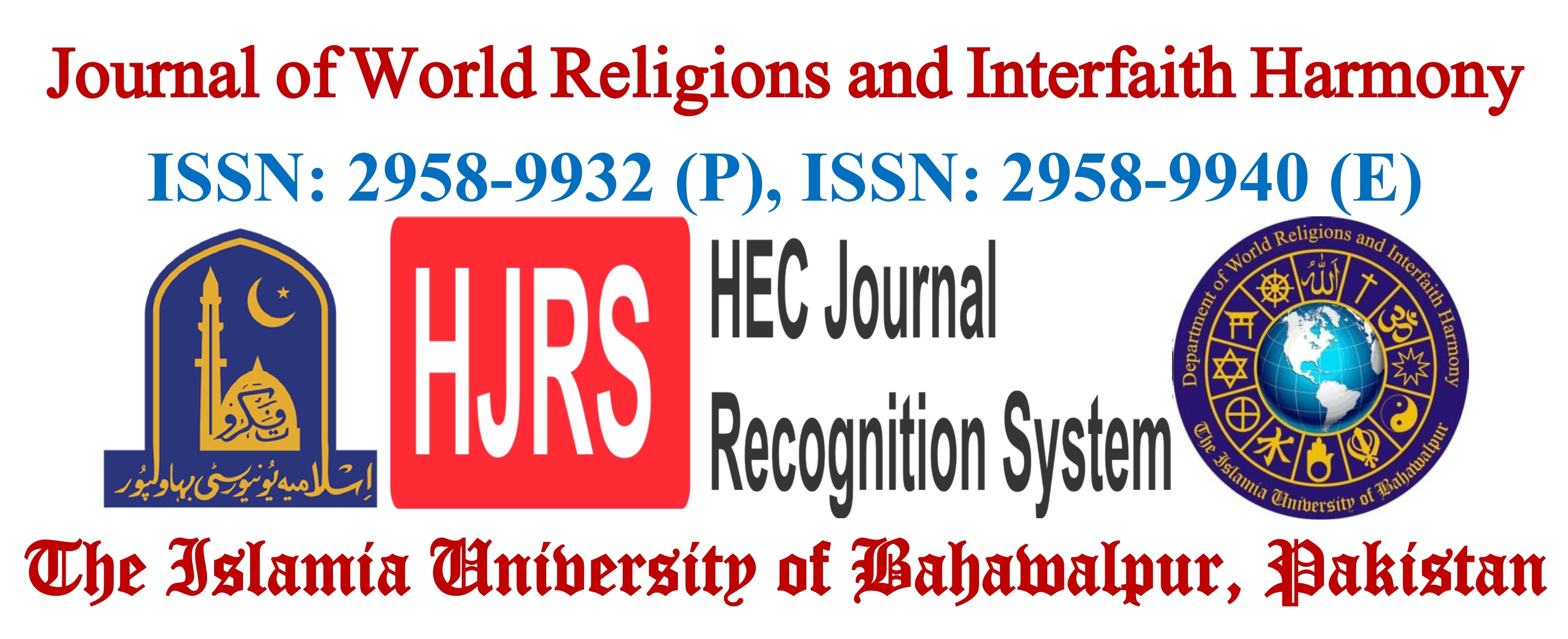Interfaith Espousal: Islamic Appraisal of Religio-cultural and Socio-economic Compatibility
DOI:
https://doi.org/10.52461/jwrih.v2i2.2171Abstract
Islam proscribes marriage with non-believers but approves interfaith marriage of a Muslim man with a woman of the book: Christian and Jewish. Primarily, marriage in Islam is considered an instrumental tool that regulates affairs between sexes in favor of a happy family that eventually accomplishes a moral and progressing society. Whereas, interfaith marriage can potentially lay grounds for interreligious harmony yet inevitable incompatibilities among competing religions are likely to shrink the possibility of an exultant social coexistence of families coming from different religions. Resultantly, interfaith marriage often demands the couple to make some mutual, though undesirable and on occasion unacceptable, religious, social and economic compromises. From the matters pertaining to imitation of ‘other people’, guardianship of non-Muslim, and inheritance to non-Muslim, to the choice of food items, dress code, rituals and social customs, interfaith marriage can originate frequent discordances. Sadly, an interfaith marriage may not provide children with distinct religious training and thereby cause in them a crisis of religious identity. Considering the gravity of the issue, I deal it from Islamic perspective to examine the religious, social and, often overlooked, economic incompatibilities that a couple in interfaith marriage, their families and children may encounter. The present study maintains that regressive preemptive deliberations should be made to avoid a situation where one is left with a choice either to make religious and social compromises with the spouse or to put up with an unsuccessful conjugal life.
Downloads
Published
How to Cite
Issue
Section
License
Copyright (c) 2023 Dr. Kosar Niazi

This work is licensed under a Creative Commons Attribution-NonCommercial 4.0 International License.






